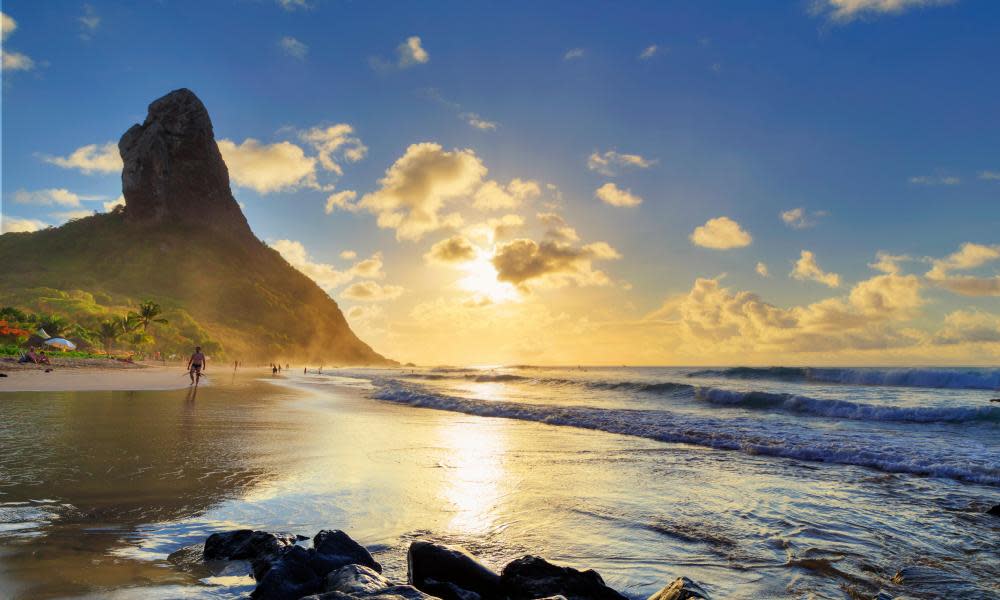Brazil's island idyll reopens to tourists – as long as they have had Covid-19

One of Brazil’s most celebrated tourist destinations, the paradisiacal archipelago of Fernando de Noronha, has announced it is reopening to outsiders – as long as they have had Covid-19.
Tourists have been banned from the Unesco World Heritage site, which Charles Darwin visited in 1832, since late March when the pandemic forced many parts of Brazil into partial shutdown.
Related: Brazil condemned to historic tragedy by Bolsonaro's virus response – top doctor
Since then more than 120,000 Brazilians have died, the world’s second highest death toll, and President Jair Bolsonaro faces accusations of catastrophically mismanaging the crisis by undermining containment measures.
But from Tuesday visitors will be allowed into Fernando de Noronha, 211 miles off Brazil’s north-eastern coast, if they can prove they have been infected and recovered.
The results of two types of test – PCR virus tests and IgG antibody tests – will be accepted if conducted at least 20 days before arrival.
Guilherme Rocha, the archipelago’s administrator, said: “In this first stage of reopening, only tourists who have already had Covid and have recovered and are immune to the disease will be authorized [since] they can neither transmit it, nor be infected again.”
Last week a man in Hong Kong was diagnosed with Covid-19 having recovered from it in March – the first lab-confirmed case of reinfection – suggesting immunity can be short-lived.
But some scientists caution against reading too much into that case and Rocha claimed the decision to reopen was grounded in science.
“What we’ve seen is that these cases of reinfection are very rare and very debatable. There are doubts,” he said.
“The current understanding is that someone who has already had this disease is immune. So this is the protocol we are following.”
Fernando de Noronha – a spectacular chain of 21 islands, islets and volcanic outcrops in the Atlantic Ocean – is perhaps Brazil’s most hyped destination, famed for its emerald waters, idyllic beaches and well-heeled guests.
Rocha said it was visited by about 100,000 tourists each year, who must pay a daily tax to support conservation efforts.
But the archipelago, whose only inhabited island has about 3,500 permanent residents, was closed to outsiders on 21 March, as coronavirus swept Brazil. In April, islanders who had left for the mainland were also barred. Locals were allowed back in late June after cases of community transmission were stamped out.
“So far we have had zero deaths – precisely because of the controls introduced by the government,” Rocha said.
Rocha conceded next week’s reopening was not entirely risk-free. “But we are aiming for the smallest possible risk. And what is the smallest risk possible right now? What is the safest way? It’s reopening tourism on the island only for people who have already had Covid.”
He urged tourists to return to what he called an “exuberant” paradise in Brazil’s Pernambuco state.
“People fall in love with Noronha because of its unmatched natural beauty, which you can’t find anywhere else on Earth,” he said. “Fernando de Noronha is unique.”

